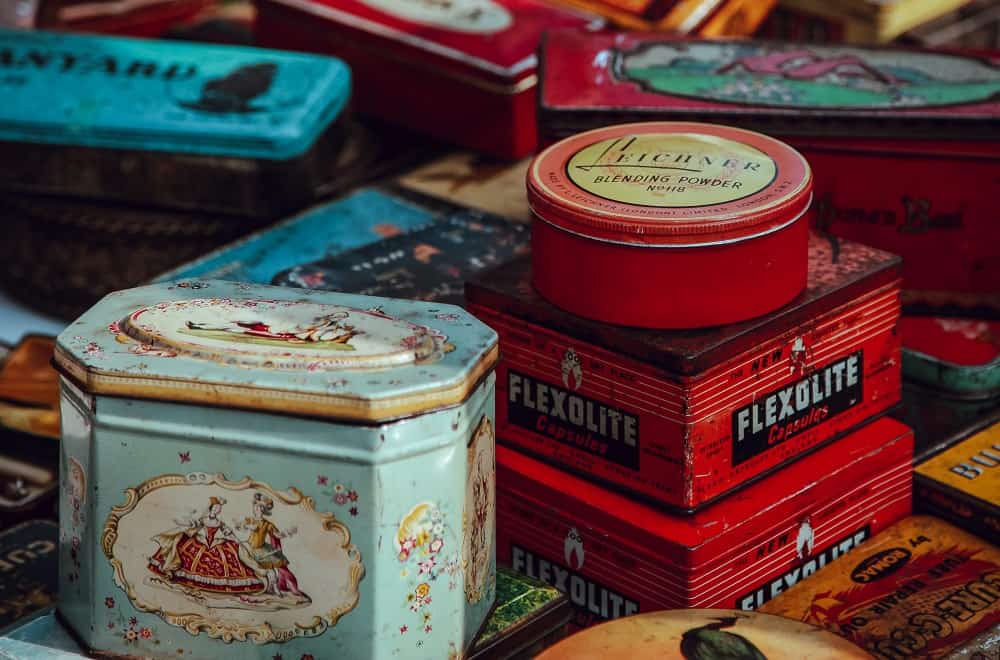5 Ideas for Donating Stuff You Don’t Need (But Is Still Useful)
We all end up with stuff that we don’t need. Unwanted gifts, stuff that we upgrade or replace, stuff we realise we don’t use or don’t like, duplicates. The list goes on.
Getting rid of stuff, when we don’t like waste, can be a challenge. Especially when this stuff isn’t really fit for selling or donating to the charity shop. Things that are broken (even if they are repairable), items with parts missing, things that have low value, stuff that has been used, opened or are worn.
We don’t want to throw it out, but we know in our hearts that the charity shop doesn’t really want it either.
The thing I love about challenges is that whilst they can be difficult, they are not impossible. Someone, somewhere, will want what you have. Whatever it is. (I mean that. You’d be surprised.) The challenge is finding that person.
It can take time, and effort, but if you succeed it is such a good feeling. You’re saving something from landfill, and making someone happy in the process.
Remember: it’s only waste if you waste it.
I’ve put together a guide of what to do with some of the random bits and pieces that you have that you know are useful… but don’t know how to find them new homes.
Ideas for Rehoming Items Responsibly
Donating to the Charity Shop
This is most people’s go-to when letting go of unwanted stuff. But that doesn’t mean that it’s the best place for the stuff. Most of us would rather donate something than throw it in the bin, but that doesn’t necessarily mean that the charity shop will want it.
Charity shops want things that they can sell! If you wouldn’t buy it, and can’t imagine that anyone else would either, don’t donate it. Charity shops get so many donations – far more than they can handle. In Australia it’s estimated only 15% of all donated clothes are resold.
Don’t kid yourself that the charity shop will want your moth-eaten old clothing with buttons missing.
Two ideas when donating to charity shops to ensure a better chance of the item being onsold:
- Call ahead and find out if they take (and need) the things that you’re donating. Some charity shops have the capacity to test electrical items and will accept them for resale, others don’t. Some don’t have space to take toys, or may have a shortage of certain things. Calling ahead is a good way to find out what they need – and what they don’t want.
- Think seasonally. Stores need to turn over goods fast to make money. Donating winter jumpers in summer or Christmas branded items in February will mean stock sitting around, and it may end up in landfill, even if the quality is good.

Donating on Gumtree or Craigslist
Gumtree, Craigslist and other platforms allow us to list items for free for others to take. How effective this is can be dependent on where you live (it’s easier in urban centres than rural locations). It’s also more effective for certain types of items, such as homewares, furniture and electrical goods.
That doesn’t mean that what you have won’t be wanted though, so it’s worth listing things anyway. Things like spare coat hangers, old bubble wrap, moving boxes and crates of old jam jars all shift surprising well.
Bear in mind that the more obscure the item, the longer it will take to shift.
(If you’ve never listed anything on Gumtree before, I’ve written a guide to selling second-hand to help you get started.)
Buy Nothing Groups and Local Online Community Networks
The more local something is, the easier it is for others to collect it, and the more likely it is to find a new home. That’s why community exchanges work so well. My local area has very active Buy Nothing Groups (a group that operates through Facebook, where goods can be taken and offered for free, with council boundaries determining whether someone can join).
Other Facebook groups include Swap & Barter groups and Zero Waste groups, or groups for exchanging specific items (fishing equipment, childen’s toys, craft supplies).
Outside of Facebook, my parents (who live in the UK) use and love a local community network called NextDoor, which allows them to connect with other members of their village.
There’s plenty of others, so explore what is local and active in your area. The global platforms might have better looking websites and thousands of members worldwide, but if there’s only two people living within 25km of you, that isn’t going to work.
If you use Facebook, that’s a great way to track down local and active groups. If not, see if you can contact community groups and ask if they have any knowledge or suggestions.
Real Life Community Groups
Community groups are another great place to consider. Craft and arts groups may be collecting certain items for projects (broken crockery is great for mosaic making, half-used paint tins may be wanted for other projects), community gardens may be able to use offcuts of materials or old tools, playgroups will accept all sorts of things for children to play with (small boxes that held electronic items are popular, as are old plastic loyalty cards (for playing “shop”).
For specialist equipment for a particular hobby, it may be worth finding an enthusiast’s group and finding out if any of their members can use what you have. For example, finding an Apiarist’s society to donate beekeeping equipment to is a much better match than simply listing on Gumtree or donating to the charity shop.
Charities and For-Purpose Enterprises
Different charities have different needs, and can be a great way to pass on unwanted items that aren’t suitable (or are too “niche”) for charity shops. Some ideas include:
- Animal refuges often accept towels, sheets and other bedding, pet food and possibly other equipment and accessories;
- Refugee centres accept donations of clothing, books, food, furniture, whitegoods and more (here’s a list of refugee organisations in Australia and the donations they accept);
- Women’s refuges, homeless centres and hostels accept clothing and blankets and may accept toiletries and sanitary items (be aware that refuges do not publicly list their addresses for obvious reasons, so you will need to connect with a local charity serving these centres to find out what they will and won’t accept).
- Charities (such as Fair Game in Australia) accept used sports equipment and clothing to redistribute to underserviced communities.
- Opticians often accept used glasses to send to underserviced communities.
- Food banks accept food but at Christmas or other times of year may accept toiletries, sanitary items and other non-food items – check with the individual organization.

Thoughts on (Shabby) Second-Hand Donations
Whilst I think it is brilliant to donate second-hand items, I also think that it is important to be mindful of their condition and respectful of where we donate them.
I once met an enthusiastic and well-meaning guy who was trying to set up a shoe enterprise donating second-hand shoes to Africa. He had collected thousands of shoes but didn’t have a warehouse, and was storing them in his garden in the open under a tarpaulin. They’d been there for 18 months.
He hadn’t given that much thought to where he would send them, whether there was an existing industry in the country that might be adversely impacted by an influx of shoes, or whether the shoes were appropriate for the climate or recipients.
His colleague said in the presentation “people in Africa deserve high-heeled shoes too!” That might be the case, but the intended community where these shoes were to be donated hadn’t actually been consulted as to their needs.
I don’t know what happened to the enterprise, and I hope they were able to have a positive impact. I think sometimes enterprises can be well-meaning but ill-considered. Sometimes we can be guilty of not really thinking through our choices.
I do think it’s important when donating to charity to consider if the recipients will really want our stuff, as tempting as it is to want to keep things out of landfill.
For example, I know that there are charities that collect used bras. I personally wear mine until they are stretched, misshapen and there is barely any life in them. I do not consider it appropriate to then donate it. That’s my opinion and my choice.
I think it can be tempting to fall into the trap of thinking that underprivileged people will want our shabby stuff. Actually, they might not.
Final Thought on Donating Unusual Items
This is not a complete list by any means, and with enough grit and determination it is possible to donate most things – not always for the purpose they were originally intended, but a purpose nonetheless. If you have something that you think is too good to throw away, get creative and start asking questions (zero waste Facebook groups are great for this).
You may be happily surprised.
Now I’d love to hear from you! What’s the craziest or strangest thing you’ve successfully donated to a happy recipient? Any other tips for where to donate unusual items? If you work in a charity shop or a for-purpose enterprise, are there any “no-no”s that you see donated often that aren’t suitable? Anything else to add? Please comment below.
[leadpages_leadbox leadbox_id=1429a0746639c5] [/leadpages_leadbox]






Great post. I find our local newspaper’s free ads great for moving stuff on. Lately I have been donating jars that I have been hoarding for ages to our local bulk grocery store. They have a big basket of them for people to fill there for free. They are super popular, in fact too popular with some people just sneaking off with them to use in jam making etc.
I hadn’t thought of newspaper ads, Anne, so great tip! Yes, I always find boxes of glass jars are very easy to shift. And it cheers me up no end to know that people aren’t buying new when there are so many in existence already :)
Hi Lindsay. Interesting post… And you just happen to have touched on two of my particular “things”. Firstly (and speaking as a former Charity shop employee) if you give rubbish to a charity shop, you’re not saving it from landfill, you’re simply passing the responsibility on to someone else. And most likely to someone who doesn’t have the time/opportunity to do more than bin whatever it is! (Yes, I acknowledge some charities are prepared to take “rags” for recycling – check first.) And secondly people in need (you used the word underprivileged) deserve to be treated with respect, and not expected to be thankful for what is, basically c**p! Okay, that’s my little rant over. And thank you for making those points.
I hear you re giving “rubbish” to charity shops! (I worked in one whilst I was at school. It’s amazing what people think is acceptable. Used unwashed underpants. No I’m not kidding.) I know it’s tempting to think “someone somewhere will want it” and yes, that *might* be true, but that doesn’t mean that the charity shop is the ideal place to connect said item with said person!
When we moved house in the UK, I listed lots of random stuff on Freegle and was amazed at what people were absolutely delighted to snap up. One woman was so grateful for our hoard of plastic plant pots! Freegle.org is a swapping website divided by area so nothing has to travel to far to be swapped
Thanks for the suggestion Stephanie – I love sites like Freegle (I don’t think that one is here in Australia, but there’s similar). And yes, plastic plant pots are very popular amongst gardeners – when you want to plant things, you never seem to have enough!
It is such a good feeling to give something to someone who will actually use it :)
Before you throw out old bras, take off the rings and sliders, the wires if there are any, and the fastening if it’s still good. See if any local charity shops have craft sections, or donate them (along with buttons and zips) to someone with a stall on a local rag market. If there isn’t a rag market in your area, make enquiries about starting one.
Finally, there’s a group on Facebook called Free To Collector, which is worth joining.
This. I also heard Uplift bras will take those components from your ratty bras and make new ones/repair more salvageable bras, but that was second-hand information from someone not directly involved with that charity.
That’s a great idea, Dee! Thanks so much for sharing. Yes, it is almost always the fabric (elastic) that dies, not the clips and other hardware bits!
Great post. I was finding that trying to limit my waste was turning me into a bit of a hoarder …keeping things that I might be able to reuse when I really knew I never would. Slowly I’ve realised that the best thing to do is to be super careful about what you buy.
I hear you Alex… I had the same realisation. So much easier to restrict what comes into the house, there’s a lot less guilt when things are at the end of their life if they have been well considered in the first place! (Eg choosing well made items, things that are repairable, things that last a long time etc etc)
You make such a good point about shabby, worn items. I’m the same when it comes to wearing out items like bras completely. It’s rare that I send one to landfill since I use them for so long, but when one does end up in landfill, I’ve really had good use out of it. I have heard about the large amount of items charities receive each year which are not suitable for resale and which therefore have to be sent to landfill. It’s such a shame that these charities’ funds have to be used to pay for disposal, diverting funds away from the actual activities of the charity.
I think this is why I’m so keen to try to replace my wardrobe with natural, compostable fibres, Liz. I hate throwing stuff away, but there comes a point when some things have to go in the bin. Rags made out of polyester aren’t as good as cotton or other natural fibres, and things like bras aren’t exactly good for that anyway! Making better choices at the time of purchase helps ease the burden at the end of life, in my experience :)
My daughter is moving house and wanted to get rid of some very loved and worn shoes (think limited tred on soles and damage to leather) . They are not suitable for donating . Any thoughts or ideas ?
Hi Kerri-Ann! I’d suggest Freecycle, Freegle, or Buy Nothing groups. Someone might have an art project or some other use for them. You never know until you ask!
When it comes to Bras, I am the same- I wear them until they are in a condition that is not at all donate-able. Can I ask what you did with them then? Is landfill the only option? :(
I think it’s possible to buy 100% natural ones Sarah, however the shops only seem to sell polyester and it’s not the kind of product I will buy online. When I’m next in Europe I’m going to look, as I think they have more options. Sadly, worn polyester bras have limited use for anything else!
This is a great post, Lindsay, thanks. I have a couple of old duvets that I don’t want anymore, and I know that duvets are almost impossible to donate (and understandably so). I’ve hit on the idea of cutting them into squares and covering them with durable fabric to make them into dog/cat beds. I will see if any local animal shelters will take them. ( I haven’t actually approached any shelters yet with this offer, but I hope they will be receptive!) x
Hi Elaine! I’m pretty sure ours take them (I know they don’t take pillows, well, the Dog Refuge at least. Not sure about cats or other pets) Hope you have success!
Local kennels use old duvets 2. They use whole or reduce size old pillows accepted too.
I didn’t know you could post free items on gumtree, that is a good option. I also have a local community share group that meets once a month and we have an area of unwanted household items, it is surprising what might be useful to another person!
Oh yes, it’s great Liz, and I find people come very quickly!
The website http://www.givit.org.au allows charities to post requests for specific items they need, which you can then respond to. As well, you can post about items you want to donate and interested charities can contact you. It’s a great way to ensure that your donation will be appreciated and make a difference, and you don’t have to worry that maybe the opshop will put your quality item into landfill if nobody buys it.
Thanks for sharing Sharon, what a great website and great idea :)
I donate old newspapers to charity shops as they are useful for them to use when wrapping up crockery for people buying stuff. Also old magazines are normally gratefully receive at doctors surgeries, dentists and hair dressers. :)
Oh this is a good idea Becky, thanks for the tip!
I didn’t realize that one can donate clothes as well as money to charities. I’m sure that I have a few things in my home that could be better used elsewhere. It would be nice to know that they are going towards something good, and helping other people who are in need.
I hope you’re able to donate them and help someone in need, Shaylee :)
This article provide us information regarding donating unusual items. I loved reading this article. Here you will get to know in detail about the topic which are in demand. I enjoyed alot while reading this article and would recommend other too.
Thanks for the kind words, John!
What a wonderful information, thanks a lot for sharing kind of content with us. Your blog gives the best and the most interesting information. I wonder if we can gather such practical information about the donating unusual items. Great one!!